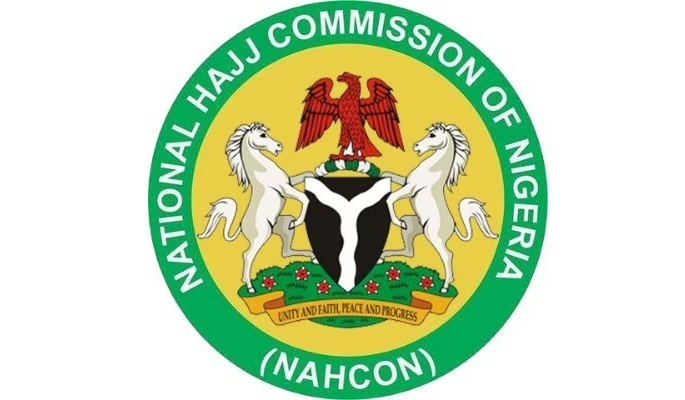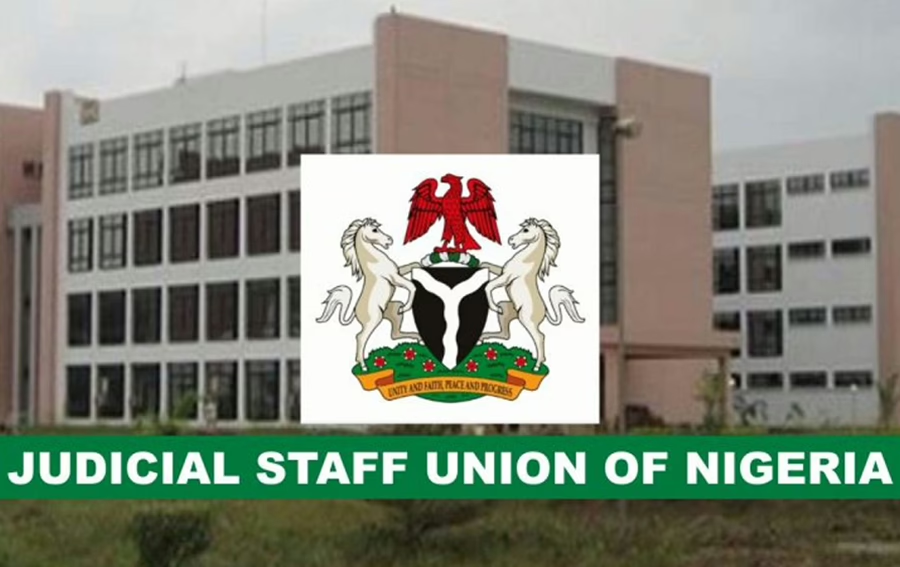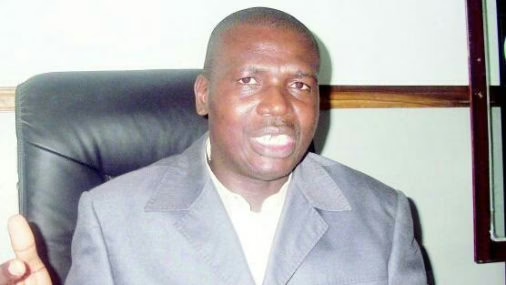The sun begins its ascent over Ikorodu, casting a golden hue on the waterfront as this reporter steps onto a direct ferry, bound for Lagos Island. The air is pregnant with anticipation, not just for the impending voyage, but also for the untold stories that ripple beneath the surface of Lagos’s aquatic highways.
From the moment this reporter steps into Ikorodu jetty and the first engine revs to life, a narrative unfolds: one that encapsulates the daily struggles and vulnerabilities of those who navigate these waters for their livelihoods. The significance of this journey extends far beyond the routine commute; it encapsulates the essence of a city that pulsates with life, yet grapples with systemic challenges in ensuring the safety of its waterborne commuters.
Although some of the passengers were aware of the safety threats they were exposed to daily, the recurring traffic jams on Lagos roads had left them with no other choice than to use the water transport mode.
At the Ikorodu jetty, a disconcerting scene unfolded. The scent of fuel permeated the air as plastic containers lined the waterfront, exposing commuters and the community to impending danger.
Closely, this reporter observed that no fewer than 150 passengers had boarded boats to various destinations as of 10am that he arrived at the jetty. Despite the trading in petrol, there was no single fire extinguisher in sight that could be resorted to in the case of emergency.
A passenger, who does not want his name in print, expressed fears about the observed safety issues but stressed that using the water transport is the best alternative because it saves time and money. “Every day, I embark on this journey with a sense of foreboding,” he shares. “The proximity of petrol trading to the jetty is unsettling. I fear for my safety and the safety of other passengers but what can we do? This is the best alternative that can make my going to work easier. I live here in Ikorodu but I work on the Island. If I am to go by road, I will spend about N3,000 before I get to Lekki but boarding a boat to Lekki will only cost me N2,000.”
He continues, “Aside from the cost, the traffic I will encounter on the road before getting to Lekki is something that cannot be described. It can take me more than three hours to get to my destination by road but by boat, within an hour, I will get there.
“I am aware of the safety issues that are connected to water transport and I always ensure to adhere to them. But I can only take my own safety as a priority. I can’t do so for others.”
The above worry was not only expressed by this passenger, another passenger, a bricklayer named Adewale, corroborated the same opinion. He said using the boat to and fro work daily helped him to have little savings from his daily payment which he lamented was meagrely to be wasted on transport.
Adewale says, “I didn’t even observe that petrol is being sold close to this jetty but I know there are hazards attached to boarding the boat. Sometimes, the river will be full and grass will occupy the surface of the water which often creates challenges for the helmsman. But, despite all these concerns, I still prefer going to work by boat because it helps me cut cost.
“How much am I earning daily that I will be spending it on bus? And what about the time it will take me to get to work if I go by road? I would have missed a day work and my employment is a ‘no work, no pay’ one. So, I am not so bothered about the safety issue. Using the road is also risky and it is only God that can save us.”
Ikorodu jetty is not the only one where trading in petrol closer to jetties occurs. A similar scenario was sighted by this reporter at the Apapa jetty; very close to the point of sale of petrol products is a food vendor.
The number of plastic containers sighted by our correspondent was more than what was seen at the Ikorodu jetty. One need not be told that petrol trading activity was going on within the environment before it could be deciphered. The black floor and walls around easily betray any attempt to conceal the fact that illegal petrol trading is ongoing within the vicinity.
Aside from the threat of fire that may arise from petrol spillage or accidental fire, the boats used in plying the waterways are mostly not in good condition. The boat boarded by our correspondent and 26 others had mechanical issues three times before it arrived at its final destination at Falomo, Ikoyi.
About 10 minutes into the journey from Ikorodu to the Island, we encountered a heap of grasses on the water surface, which forced the boat to slow down. After scaling through the heaps, it took several efforts before the engine could come up for us to continue our journey. The few minutes breakdown left our boat dangling in the middle of the sea. This situation is courtesy of bad ignition port as wires of the ignition were seen carelessly muffled together.
Another safety threat observed by this reporter is the blurry windshield of the boat. Made from transparent plastic, the windshield shows the effect of a long exposure to sunrise and sunsets which has left the windshield blurry. This situation forced the helmsman to stand all through the journey with his head popped out of the boat sunroof for clearer vision which left one to wonder how he intended to navigate if the rain started unannounced.
When this reporter made attempts to engage the helmsman, identified simply as Shola, he dismissed all efforts made to get his reaction on the condition of the boat. He however stated that he was only a helmsman and not the boat owner. He noted that each boat that plies the waterway pays the sum of N1,500 per trip to the government through a third party collector.
Shola said, “I am not the owner of the boat. I also make delivery to the owner every day. The government is aware of this transport and we pay a sum of N1,500 for every trip.”
In the maritime route connecting Apapa to CMS, a disturbing trend emerges, revealing a perilous reality of an attitude of a man who perhaps has a “duplicate life kept somewhere”. Some boat crew members seem to be operating with a nonchalant attitude, blatantly disregarding essential safety measures.
The helmsman, whose role is to ensure the safe navigation of the boat, nonchalantly moved about without the mandatory safety jacket. This blatant oversight, usually a fundamental safety requirement, set the tone for a journey marked by a lack of regard for essential precautions.
Further compounding the risk, a trader on board, boldly displayed wares without the protection of a safety jacket. This double standard regarding safety raised immediate concerns about the potential for disaster should an unforeseen incident occur during the trip.
This disregard for proper wearing of safety jacket was not only abused by the crew members, a majority of passengers aboard the boat from Apapa to CMS were seen not properly wearing their safety jackets and there was no routine check to enforce the proper usage of the jacket.
It was also observed that despite a boldly written inscription indicating a fire extinguisher point, no single fire extinguisher was sighted by this reporter.
Amidst the daily hustle and bustle at the Ikorodu Jetty, the lack of essential infrastructural facilities exacerbates the challenges faced by passengers seeking respite on the Lagos waterways. The scene unfolds under the early morning sun, where passengers, devoid of a designated waiting area, stand exposed, anxiously awaiting their turn to board.
The jetty’s path is a precarious construction of wood which raises concerns about its structural integrity over time. With each footfall, there’s a lingering worry that the makeshift pathway might succumb to wear and tear, compounding the risks faced by those navigating this vital transit point.
Aside from the wooden jetty, another concern is the absence of a formal ticketing structure leading to a makeshift solution. Tickets are sold beneath the shelter of an umbrella, stationed at a corner close to the jetty. This informal arrangement not only exposes the lack of proper facilities but also adds an element of chaos to the ticketing process, leaving passengers grappling with uncertainties.
At the Lekki drop point, the situation further deteriorates. The absence of a dedicated jetty forces passengers to navigate through broken blocks placed precariously at the water’s edge. This makeshift pathway becomes a symbol of the ad hoc nature of the water transport infrastructure, where passengers, in their quest for convenience, tread on unstable ground.
The narrative takes an unexpected turn at the Apapa jetty, where an uncompleted building reluctantly serves as both a waiting area and a ticketing booth. The skeletal structure, devoid of finishing touches, embodies the sheer inadequacy of infrastructural provisions for those reliant on water transport. Passengers find themselves seeking refuge in a structure that reflects the incomplete state of the very system meant to serve them.
The situation with the Ikorodu jetty is similar to what was observed at the Coconut jetty. For passengers going to Igbologun (Snake Island), a small community hosting the almighty Niger Dock company, they are faced with similar challenges as applicable with the Ikorodu jetty.
A passenger at the Coconut jetty, Ayomide Towolawi, expressed her concerns over the safety of the only means of transport linking Igbologun. She said, “The wooden boat is overcrowded and I was scared it might capsize. Aside from being overcrowded, the engine of the wooden boat was not in good condition as it kept going off in the middle of the water.
“I was scared when a bigger boat caused a current and the engine stopped. But thank God for the magnanimity of the bigger boat that slowed down on sighting our boat. Something should be done to ensure the safety of passengers along this route.”
The Falomo jetty, proudly housing the Lagos Waterways Authority headquarters, stands as a beacon of what safety infrastructure should embody. The waiting area, meticulously arranged, provides a glimpse of thoughtful urban planning. A coordinated ticketing booth adds a layer of efficiency, streamlining the boarding process. What truly captures the attention are the numerous safety precaution signs strategically displayed, forming a comprehensive visual guide for passengers. It’s a tableau of government’s commitment manifesting in a space designed to make citizens’ lives not just functional but also bearable.
As one basks in the well-crafted ambiance of Falomo, the glaring question arises: Why can’t such facilities be replicated across other jetties? The stark contrast between Falomo and the remaining jetties becomes a poignant reminder of the potential for uplifting the overall safety standards for commuters.
At the CMS jetty, operated by the Nigeria Waterways Authority, the disparities in aesthetics are evident. CMS lacks the serene and breathtaking allure of Falomo LASWA office, yet it is not devoid of safety cautions. Despite its comparatively humble appearance, the presence of safety measures suggests a degree of acknowledgment regarding the importance of passenger well-being.
A 2019 study published by Open Journal of Safety Science and Technology titled, “Prevalent Safety Hazards and Safety Practices in Maritime Transportation in Selected States in Southern Nigeria,” identified several unhealthy safety practices which contributed to the underdevelopment and decline of the sector including no compliance to established safety code of conduct in jetties such as adherence to drug and alcohol policy; safety briefs were rarely conducted before take-off; journey, management forms were handled trivially; personal floatation devices (lifejackets) were not adequately provided and were not properly worn. These poor safety practices are perceived to be responsible for the high incident rate in thr maritime transport.
Another 2023 study by Okunma and Enughwure titled, “Assessment of Passenger’s Safety Implementation in Water Transportation” (a Case Study of Kurutie, Okerenkoko and Escravos Waterways) and published by Journal of Applied Research on Industrial Engineering disclosed that passenger boat accidents are prevalent in coastal and interior transportation, particularly when necessary maritime safety laws are not strictly observed and monitored. It added that the attributing factors that lead to the increase in boat accidents in the study areas included poor maintenance of the boat, faulty engine malfunction, high tide/unfriendly weather condition, drivers’ unfamiliarity with waterway routes, drivers’ lack of experience, overloading and overcrowding and lack of enforcement of safety regulations by government agencies.
A professor of Geography and Regional Planning with specialisation in Water Transportation at the Olabisi Onabanjo University, Ago-Iwoye, Ogun State, Bamidele Badejo, corroborated the assertions from the studies above. In a recent interview with , he said, “Water transport is like a system and when one of the system is faulty, the entire system will collapse. If you look at water transportation, it is a sector that is predominantly dominated by informal sector players. Even though there are other agencies of government and other state agencies that have huge responsibilities to ensure that sustainable water transport system was bestowed, but I want to say that the most important aspect of developing something is money.
“Most of the agencies of government both at the state and federal levels do not have the professional competence to do exactly what should be done.
“When we are talking about the water transport system, the first thing is the boat. When the boat is not in a good condition, safety concerns can occur. Another aspect is the manpower needed to operate the boats. To effectively run a safe water system, a well-trained manpower is needed to operate the boats. When we have non-professionals operating the boats, we will be having rising boat accidents.
“The condition of the jetties is another concern that should be look into. The jetties are like a gateway for passengers to link the water route with the road route. The conditions of these jetties play critical roles in the development of water transport.
“One other factor that contributes to the situation you have observed is lack of regulatory framework. I must commend the Lagos State Government for the role it is playing on the development of the water transport system. There are too many regulators on the coastline who are overriding each other duty and this is causing conflict of interest.”
When contacted, the Lagos State Waterways Authority Managing Director, Mr Damilola Emmanuel, acknowledged the safety concerns identified by this reporter. He stressed that the agency had put some policies in place that had helped to mitigate boat accidents.
Emmanuel said, “The Lagos State Waterways Authority has developed a Search and Rescue Unit which regularly updates emergency response plans, including coordination with relevant stakeholders, to efficiently manage and respond to accidents or incidents. We also involved local communities in safety initiatives, encouraging a sense of responsibility and cooperation in maintaining safe practices, organise regular drills to ensure that all relevant personnel are well-prepared to handle emergencies efficiently.
On the issue of fuel trading at some of the jetties, the LASWA boss noted that, “The Lagos State Waterways Authority through a partnership with Ibile Oil & Gas Corporation set up fuel dumps in terminals across the three senatorial districts (East, Central and West) in Lagos to discourage indiscriminate fuelling on the waterways and encourage safest fuelling practice. There is a collaboration between LASWA and law enforcement agencies to coordinate efforts in identifying, investigating, and apprehending those involved in illegal fuel trading.”
He however stated that LASWA is committed to addressing all safety issues at the various jetties by improving safety infrastructure and implementing comprehensive safety measures.
“The Lagos State Waterways Authority is committed to addressing safety concerns at various jetties by improving safety infrastructure and implementing comprehensive safety measures at identified jetties to ensure the well-being of passengers. These measures will include constant evaluating and upgrading the facilities to create a safer and more secure environment for everyone, deployment of Waterguard Corps across all jetties in the state, utilisation of the long-range cameras and surveillance system of the Waterways Monitoring & Data Management Centre to view real-time activities across the Lagos inland waterways, ensuring timely response to any safety issues, conduct thorough risk assessments to identify potential hazards and vulnerabilities at each jetty and invest in upgraded infrastructure, including installing safety barriers, proper lighting, signage, and emergency equipment,” Emmanuel noted.
In view of all the safety issues identified above, experts still believe that there is a solution to ending the issue of safety concern on Lagos waterways and the jetties.
For Badejo, human capital development, acquisition of new boats, provision of necessary infrastructure at the jetties and amendment of the legal framework to accommodate state governments are needed towards running the water transport system effectively.
“The first effort that should be done is to develop and expose the human resource aspect of that sector to professional development competence and knowledge. It is when the professional competence and knowledge that goes beyond just collecting revenue take place that proper development of the water transportation system can occur.
“There is also a need for government to acquire new boats that are in good conditions to run the waterways. Just like there are standards to the kind of planes that can fly the airways, the same should be applicable to water transportation.
“Lastly, there is a need to amend the water transportation legal framework to give more powers to the states to effectively operate the water transport system. All these will help to improve the water transport system,” he said.
Afolabi Olanrewaju in his study on recommendations for water transport system in Lagos suggests that, “Even though water transport systems are not the final solution to transport problems in Lagos, it will help form an integrated system of different modes. Despite the fact that the private sector has helped reform the existing transport system in the Lagos Metropolis by providing a more competitive service rather than competing for passengers, the system requires the water transit be given increased respect and priority in transport planning decisions, including investment.
“There is a need to ensure greater coordination with local planning and operating agencies for the purpose of identifying water potential, the need to conduct research, develop operational techniques and promote the use of technology to enable safe and efficient deployment of water transport system.
The Lagos Water Transport System has been a victim of unpreparedness; the result of which was to be trapped into obsolescence through poor infrastructure, policy inconsistency, unprofitable and uneconomic returns on investment. There is a need to reposition the water transport system so that it can contribute positively to the social, economic, cultural and political progress of the country. It is for these reasons that partnership between public and private sectors has become an inevitable option to salvage the sinking water transport transportation and make it more result oriented, functional and sustainable.
“Taking seriously the twin issue of safety and security in the water transport system, example of which is the necessity for the establishment, and on the other hand, adequate funding of the Marine Police and Coast Guards to ensure operational efficiency.
“In order to improve customer satisfaction on water transport, the decision maker and provider have to improve service quality in water transport system,” Olanrewaju concluded.











